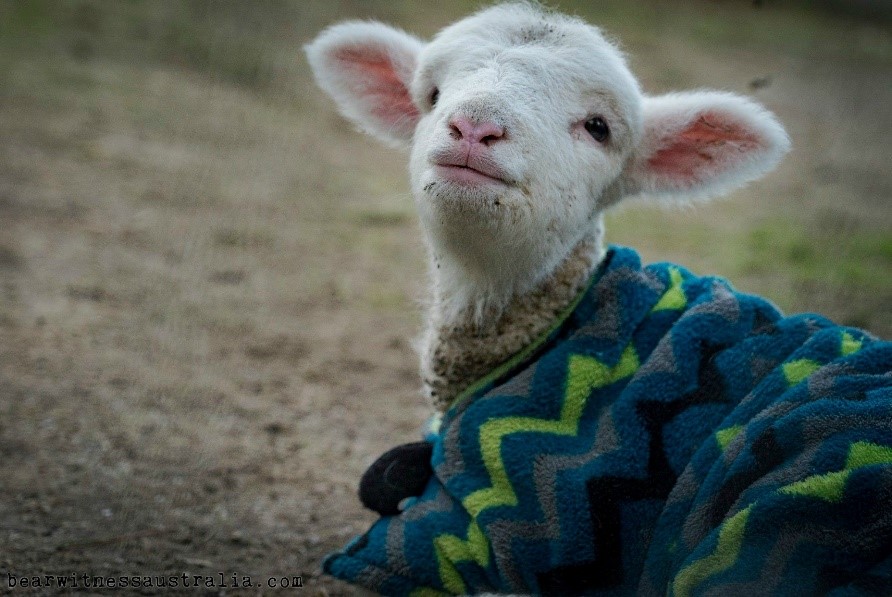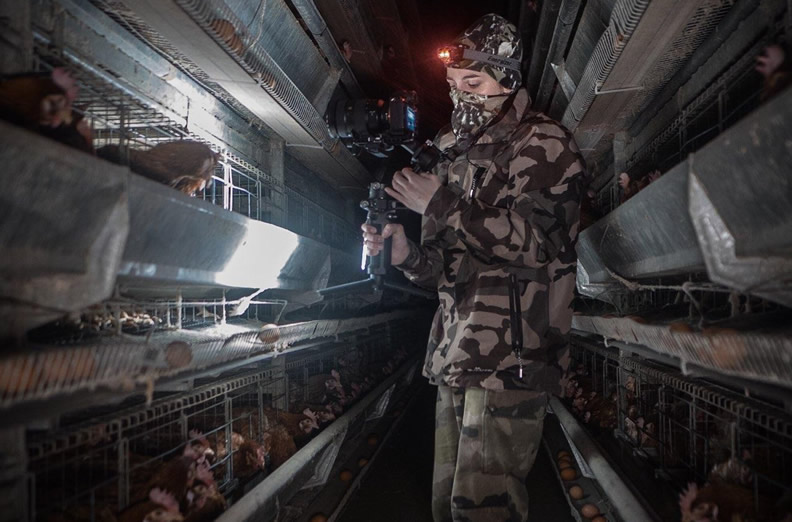Taking care of yourself after watching Dominion
Written by Adelaide-based clinical psychologist Apoorva Madan
Bearing witness to the suffering of animals can take a psychological toll.
Not only are we exposed to violence, but the empathy we feel for the victims can cause us to suffer vicariously.
You may notice feelings of anger, despair, grief, or hopelessness. You may struggle to forget the images you’ve seen, have negative thoughts about the world, feel a sense of estrangement from others, or struggle to sleep and concentrate. Given that what you have seen relates to cultural and systemic behaviours, you may find these responses being triggered frequently. Please note that these are valid emotions and a normal response to experiencing something traumatic such as this.
Learning about, or re-exposing ourselves to animal suffering can be a disillusioning experience.
It is important at times like this that you look after yourself to help cope with what you’ve experienced. Self-care may also help reduce the chances of prolonged distress that can significantly impact our day to day lives. Your mental health is important for your wellbeing. And if you are an animal advocate, it may be important for the cause.
Bearing witness can also be powerful.
By exposing yourself to these atrocities, you have opened your heart and mind to a difficult reality, but one that you can now impact. Bearing witness gives us knowledge that we can share with others, it can transform our own perceptions and behaviours, or it can drive us even further to advocate against an injustice.
Our empathy and willingness to acknowledge these horrors, rather than look away, can be the catalyst that helps us to create meaningful change.
How do I look after myself?
It may sound simple but taking care of ourselves is difficult when we don’t make it a priority.
Looking after some of our basic needs is vital to our wellbeing. But self-care goes beyond this too. It involves being compassionate to ourselves, watching out for negative self-talk, and taking extra care in what we do following a distressing experience.
- Attend to your body’s needs: Feeling distressed can be exhausting and deplete our energy. Assure you stay hydrated, well fed, and allow time for leisure, relaxation, or creativity. Physical exercise and attention to adequate sleep can also do wonders for our mental wellbeing
- Get connected: It can feel isolating when you have learned about something that many do not know or understand. Reach out to someone you trust, connect with local animal advocacy groups who organise social meet-ups, or dedicate time for social connection either independently or within your organisation. Social support is incredibly effective in building our resilience.
- Make a difference: If you are feeling confused or helpless about what to do, there are many ways you can help influence the lives of animals - whether it's donating, changing your eating habits, sharing what you’ve learned, or becoming a more dedicated advocate. As individuals, we have the power to make significant impact through our everyday choices. Choose your own goal in contributing to the cause, then put together an action plan on when you will do it and the steps you will take to make it happen
- Expose yourself to empowering and positive animal imagery. When we are exposed to a large amount of negative imagery, it can be easy to lose sight of progress and hope. Keep yourself reminded of the many animals who are living safe and happy lives due to the people working hard to make the world a better place for animals and remember that you are a part of this too.
- Watch out for your internal dialogue. You may start to think negatively about people or the world. Sometimes what we tell ourselves can intensify how we feel. It may help to write down your thoughts, so you can work out which ones help, and which hinder, which make you feel empowered and which make you feel defeated. For example, when we believe that most people are inherently cruel, it can make us feel resentful, bitter, and cause us to withdraw from others, which is often the opposite of what we want to do in advocacy or to feel better. Our thoughts can also be unrealistic, in this case, the thought misses the fact that many people intuitively care about animals and are not aware of how systems and behaviours impact them. And just like you, many people would be distressed if they saw what was happening to animals
- Avoid over-exposing. You may think you need to keep exposing yourself to animal cruelty to stay informed or support the movement. But if you are particularly sensitive to violent imagery or are already suffering, then it can be re-traumatising or self-defeating. Try to release the pressure on yourself to keep witnessing.
- Access professional support. If you are feeling prolonged or notable distress, visit your GP or local mental health professional who can guide you to the appropriate services.
You may also contact online mental health services such as Beyond Blue (1300 22 4636) or Lifeline (13 11 14) who offer 24/7 phone support. If you are in crisis, and are concerned about your safety, call 000.
You do not need to be at the peak of suffering to access mental health support. Mental health support can be beneficial for anyone, whether for prevention of further distress, or treatment. - Remember. While the suffering of animals may seem vast, global efforts to protect them are unremitting. The animal rights movement is one of the most rapidly and passionately growing of our time, and there are no signs that it will be slowing down
Thank you for watching Dominion and extending your compassion to animals. By doing so, you have become another voice capable of empowering and changing the lives of animals around the world.
“Never doubt that a small group of thoughtful, committed citizens can change the world; indeed, it's the only thing that ever has”

If you would like more information about the work of Farm Transparency Project (FTP) and the Dominion Movement, visit farmtransparency.org or dominionmovement.com
If you would like more information about psychology and animal advocacy, visit animalandmind.com
